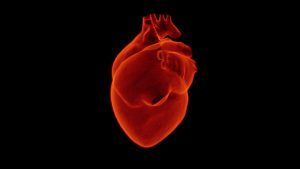Inflammation is a complex process which the human body uses when presented with an irritant. It is a part of our immune system and basically serves to get rid of a noxious substance and repair damaged tissues and organs. Depending on the location of acute inflammation, one might experience signs of inflammation: redness, pain, warmth, swelling, and loss of normal function in the affected area. This is normal and beneficial function of our immune response.
However, when inflammation is present for long periods of time it can be quite harmful. Chronic inflammation can happen a result from exposure to toxins and allergens, inflammatory foods, or free radicals and it is associated with multitude of health issues including cancer, heart disease, stroke, autoimmune disease, arthritis, dementia, and many others. In addition, chronic inflammation is believed to accelerate the aging process. How can you find out if you have inflammation and what can you do to decrease it?
There is an inflammatory marker called high sensitive C-reactive protein (HS CRP) that any healthcare provider can order for you. Optimal range for CRP is less than 1mg/L. If your level is higher than that, you will want to identify the source of the inflammation, then treat it appropriately. Lifestyle changes will be one of the most important part of your treatment protocol. Not only diet but also eliminating environmental toxins as much as possible is important. You might also benefit from taking anti-inflammatory supplements. These include curcumin, ginger, bioflavonoids, cayenne and black pepper, magnesium, alpha-lipoid acid, essential fatty acids, and green tea extract for example.
Learn more:
Inflammation & Cardiovascular Disease
http://circ.ahajournals.org/content/105/9/1135
Inflammation and Cancer
http://news.mit.edu/2015/link-between-inflammation-and-cancer-0115
https://www.ncbi.nlm.nih.gov/pmc/articles/PMC1994795/
Diet, Inflammation and Autoimmunity
https://www.ncbi.nlm.nih.gov/pmc/articles/PMC4034518/
Chronic Inflammation and Aging Process


